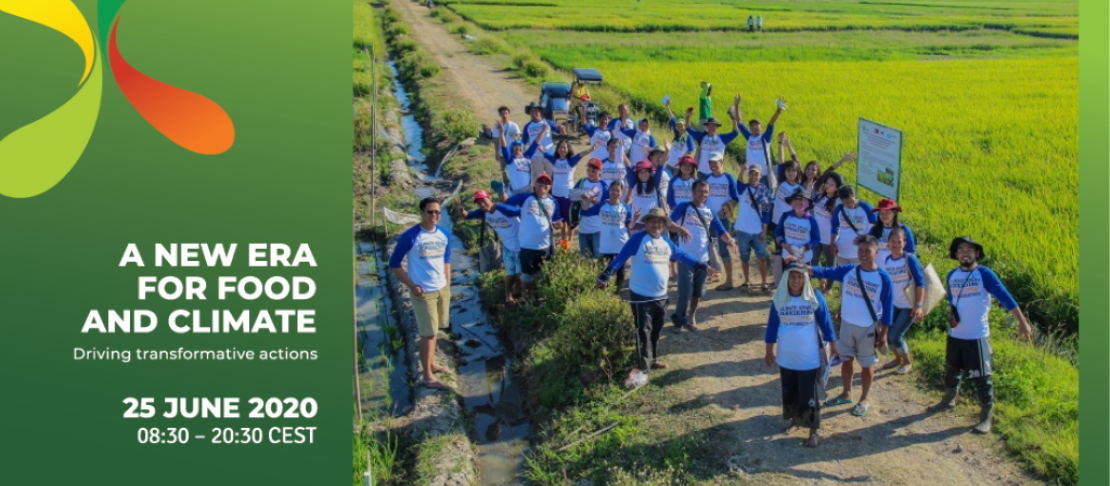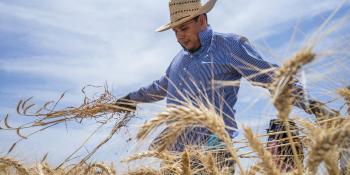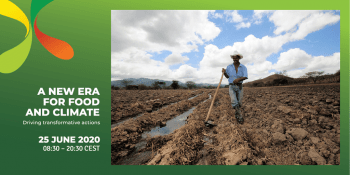Transforming food systems for a new era: Supporting prosperity through mobility and rural reinvigoration

Rural areas play an essential role in supporting societies. Increased mobility and rural reinvigoration could support prosperity in these areas.
A number of years ago, while interviewing farmers in semi-arid Zimbabwe, one of us (Bruce) was struck by one of the local measures of success—getting one’s children out of the rural area into good jobs elsewhere. This reflected the harsh realities of rural life. There were high risks for farming—crops and livestock subject to drought and floods. The markets were poor, with farmers at the mercy of a few buyers, high price volatility, and poor roads and market storage facilities. And it was back-breaking work with low financial returns.
Join the discussion on “Supporting prosperity through mobility and rural reinvigoration” part of the “A New Era for Food and Climate” virtual event on 25 June. |
|---|
Rural life today still suffers from many of these hardships and with climate change and changing weather patterns agricultural incomes are becoming even more unpredictable. It’s no wonder that rural life is not attractive to many, with no escape from poverty in sight and high food insecurity. However, it is the rural areas that provide many of the services and goods essential for society as a whole, including urban dwellers. These services include not only food production, but also the maintenance of ecosystem services such as climate regulation and water provision, rural tourism and other rural industries.
Therefore, rural areas in many countries need to be revitalized and made functional. They require investment to become attractive places to build sustainable livelihoods. Drudgery needs to be removed from agriculture, farming must be profitable, and strategies must be found to reduce climate-related risks. In sub-Saharan Africa, food imports are rising significantly—the high demand indicates there are opportunities to energize local and regional markets that support smallholders.
Agriculture and rural reinvigoration
The CGIAR Research Program on Climate Change, Agriculture and Food Security (CCAFS) has been developing approaches to effectively support and empower local producers for many years. As part of the Transforming Food Systems Under a Changing Climate initiative, CCAFS recognizes four generic household types in rural areas: those “stepping up”, “stepping out”, “hanging in”, or “food insecure”. We need diverse strategies to cater to these groups.
Market development is going to be easiest with those “stepping up,” as they have the resources, know-how and ability to engage with markets. Government actions can help develop markets and incentivize private sector investment. Innovation is key. For example, mechanization that is suitable for small-scale producers can remove drudgery. Digital tools can be used to access information, enhance farmer-to-farmer learning and improve access to financial services. In this regard, the German Federal Ministry for Economic Cooperation and Development (BMZ), amongst many other
In sub-Saharan Africa, food imports are rising significantly—the high demand indicates there are opportunities to energize local and regional markets that support smallholders.
initiatives, founded 15 “Green Innovation Centres” for the agriculture and food sector—14 in African countries and one in India. These centers are at the heart of the special initiative “One World – No Hunger.” About one million smallholder farms have benefited from training and advisory services.
Much more public support than private sector action will be needed with those “hanging in” (i.e., the ones that are coping, but not markedly improving their livelihoods) or “food insecure”. But careful programming can help these populations move into the “stepping up” category. For example, the Productive Safety Net Program launched in Ethiopia in 2005 provides food and financial support to beneficiaries in exchange for public work. More than 8 million people benefit from the program, which covers over 600,000 ha of land. The program implements participatory integrated watershed management and degraded ecosystem rehabilitation programs at both the landscape and smallholder farm levels, resulting in livelihood, ecosystem and agricultural outcomes.
“Stepping out” of agriculture is something agriculturalists may not want to hear, but is an essential part of rural reinvigoration. If markets can grow in small-scale agricultural landscapes, there will be many other non-farm opportunities in and outside the food system for building successful livelihoods. Given rising youth unemployment, these livelihood options should be stimulated: as infomediaries, as commodity buyers, and as part of rural service centers, to name a few.
One of the objectives of the Green Innovation Centres is to generate new jobs in the area of food processing, ensuring that a greater portion of the value-added from agricultural production remains in rural areas. In Benin, the Green Innovation Centre provides on-site coaching within companies. More than 1,500 people have already received individual coaching on subjects such as business management, accounting, business plan development, and establishing contacts with banks. This has already created a total of 850 new jobs, and several companies have been able to double their sales.
The COVID-19 pandemic could add a whole new dimension to the discussions about rural areas. If urban populations return to rural areas for reasons of safety or food security, these areas will have to accommodate even more people. At the same time, the demand for locally produced agricultural products (food, fiber, energy) could be boosted by international trade restrictions.
This blog is part of a series for the Transforming Food See details and register here. |
Read more:
Bruce Campbell is Program Director of CCAFS. Steffen Entenmann is Agriculture and Rural Development Advisor at GIZ.
Photo: Infomediary Campaign/PhilRice




